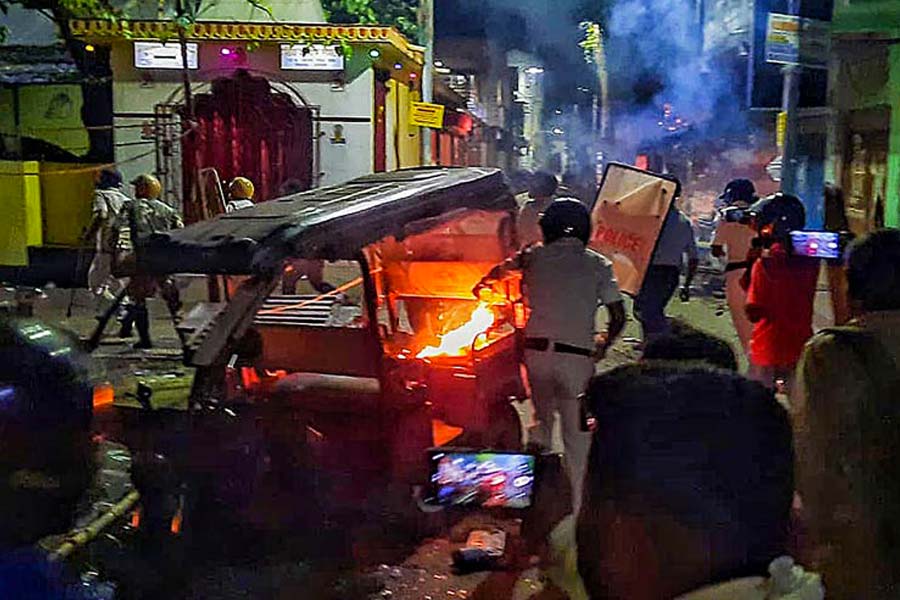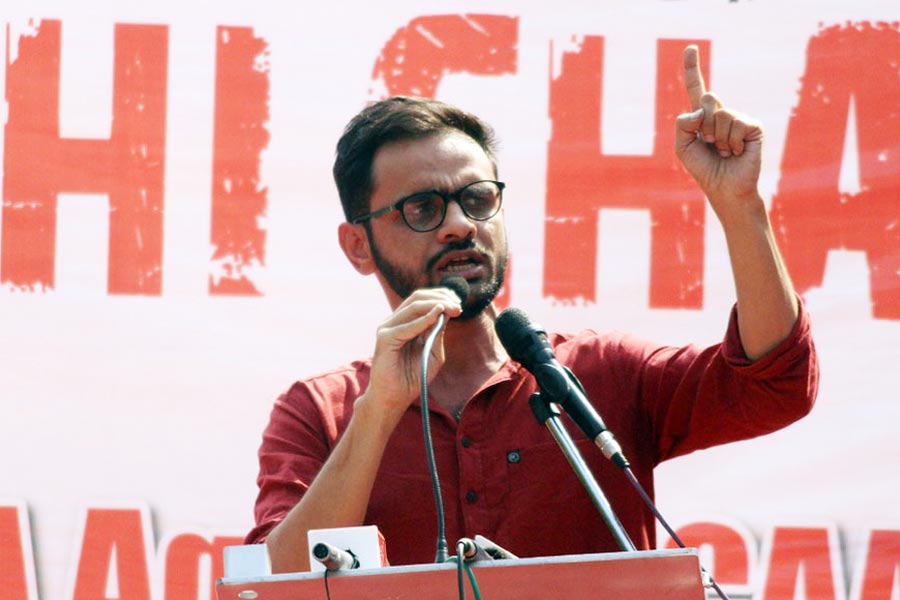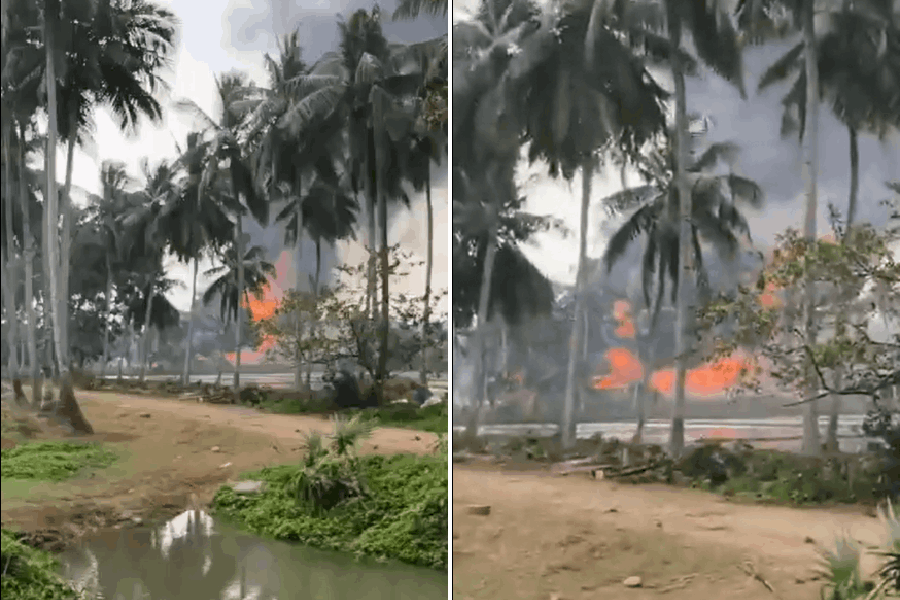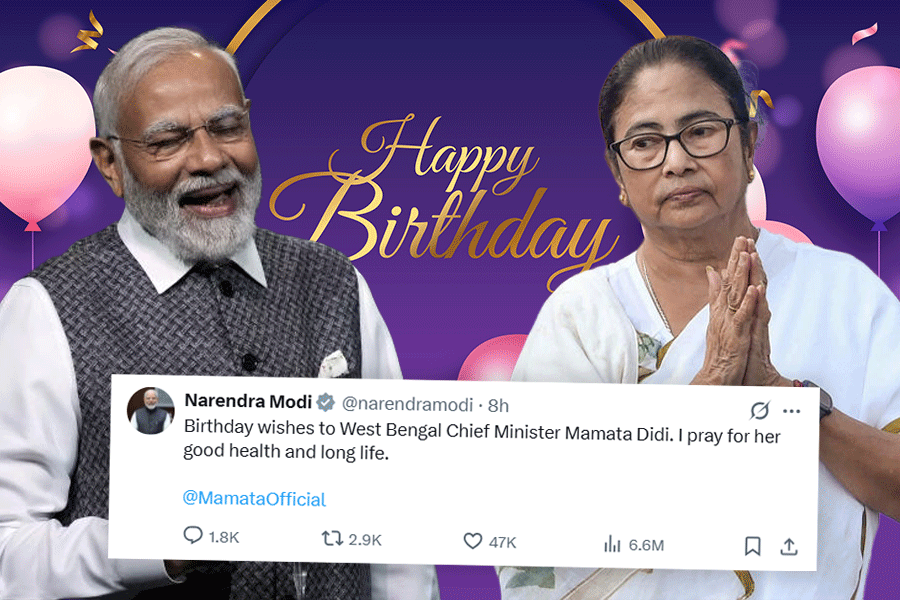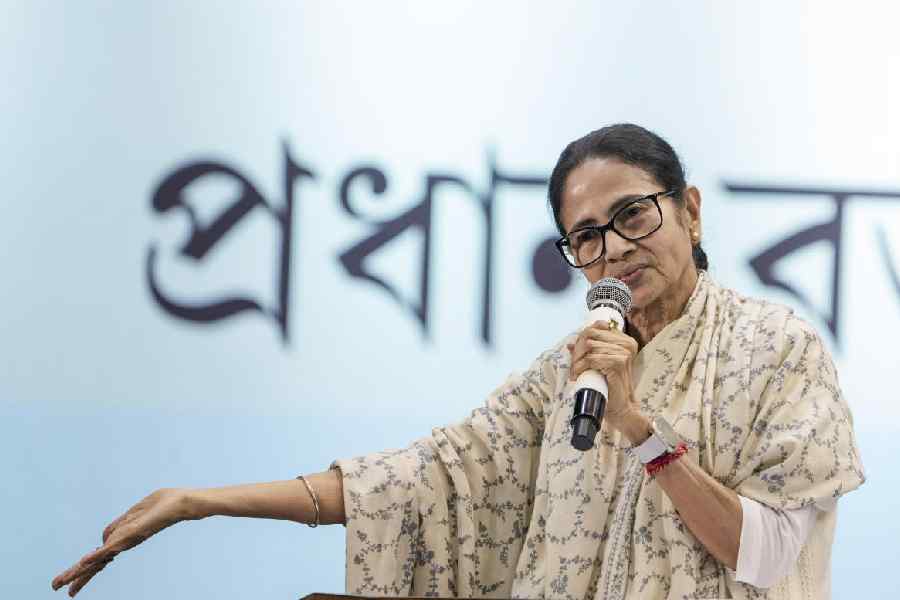Eleven murders in six months. Or so, claims the BJP.
That’s the statistic that Bengal BJP chief Sukanta Majumdar has put up on his official Twitter handle to highlight what he calls “the re-run of political violence in the state, unleashed on BJP workers and supporters by the ruling Trinamul Congress, ahead of the upcoming panchayat elections”.
The figure, the party states, is over and above the alleged hundreds of killings, torture and displacement from homes which were inflicted upon their workers in the aftermath of the 2021 state elections.
The Trinamul rubbishes Majumdar’s claim as a “conspiracy hatched to destabilize peace in Bengal” and as an attempt to “hide the organizational failure of the BJP’s state unit from the eyes of their bosses in Delhi”.
Yet the question that merits an immediate response from both the state’s ruling dispensation and its principal opposition is whether Bengal would at all be able to break the jinx of its long-standing legacy of political violence in the run-up the rural polls or whether the recent killings only serve as a precursor to more savagery that’s yet to unfold… the promises of Trinamul satraps for a “free and fair panchayat election”, notwithstanding.
The 11th name in Majumdar’s list can serve as a case in point.
Before the body of BJP booth president, 61-year-old Bijoykrishna Bhuinya, was recovered at a distance from his home with an injury mark on his head on May 2 at Moyna in East Midnapore, his wife and son alleged that the victim was first beaten up by “TMC goons” right before their eyes and then taken away on a two-wheeler. Bhuniya was on his way back home the evening before when he was attacked.
Two days later Arun Halder, the National Scheduled Castes Commission vice chairman, visited the scene of the crime and claimed that Bhuniya was murdered “with the connivance of the local police”.
Two post mortems (the second one conducted on Bhuinya’s body at the Eastern Command Hospital in Calcutta in compliance with a Calcutta High Court order), some major political unrest and a BJP-sponsored protest bandh in the area later, the local Bakcha panchayat and, indeed, large parts of Moyna continues to simmer in tension.
On Saturday, a day after the Bhuniya’s family performed his last rites at his native Goramahal village, local BJP workers reportedly ransacked some of the houses of FIR-named Trinamul workers who have now fled the area. The Bengal government has, in the meanwhile, submitted in court that Bhuinya was shot dead. The first autopsy report confirmed multiple external injuries on his body.
Three of the 34 murder suspects named in the FIR by the victim’s kin have so far been arrested. Among them are Milan Bhownik, a TMC Bakcha gram panchayat member, and two others – Nandan Mondal and Sujoy Mondal – who are reportedly “active Trinamul workers”.
A case was lodged under sections 302 (murder), 326 (kidnapping), 120-B (criminal conspiracy) and 34 (acts done by several persons in furtherance of common intention) of the Indian Penal Code on the basis of the complaint lodged by the victim’s kin.
The family, while alleging that pleas before the local police to save the BJP activist after he was abducted fell on deaf ears, says it would not settle for anything less than a CBI probe since it has lost all faith in the state police.
The involvement of the local Trinamul, as the arrests seem to indicate, is despite the party’s claim that Bhuinya was a victim of BJP infighting. On May 3, a day after Bhuinya’s murder, TMC spokesperson Kunal Ghosh posted a video of an earlier speech by the state’s leader of opposition Suvendu Adhikari and claimed that the latter had himself threatened Bhuinya and that this crime could be a fallout of BJP factional feud.
The Moyna incident and its aftermath serve as a typical reminder of how truth, justice and, perhaps more importantly, pre-empting of such crimes in the future gets waylaid amid myriad claims and counter-claims of the political powers that be. It’s also an ominous warning of the vicious cycle of political bloodshed that awaits Bengal in the weeks and months ahead.
BJP national vice president Dilip Ghosh believes that the assurances from Abhishek Banerjee and other TMC leaders for violence-free panchayat polls are nothing more than lip service.
“Those words are only meant for the Press and not for their cadres. The TMC knows it has lost its credibility among the masses on account of its rampant corruption and the violence it has unleashed on the opposition. They know they cannot win the panchayat polls unless they instill fear and intimidation among people. Hence there would be more violence in the days ahead during the run-up to the rural polls,” Ghosh said.
Justifying the recent acts of violence on police, he stated: “The state police are now nothing more than an extended cadre force of the Trinamul. They have no other option in the current scheme of things. We expect no justice from them.”
Ghosh maintained that the panchayat polls were important to the state BJP since the local polls were the means to retain the party’s political foothold in the state. “We cannot do that unless we win the panchayat. The Lok Sabha polls are being taken care of by the central leadership. We are taking the panchayat elections very seriously,” he said and claimed that the BJP has already managed to form committees in 70-80 percent of the booths.
Asked what his party’s strategies to counter TMC’s so-called aggression were, Ghosh declared: “We have fought the TMC in every election for the last five years. We now know how to counter them at all levels.”
TMC spokesperson Kunal Ghosh was all sarcasm in his response. “Let them first find candidates in the gram panchayats, let them first build committees in booths. Those who cannot form booth committees use violence as an excuse to hide their organizational weakness. They are making these allegations and causing disruptive activities as face-saving measures to hide their organizational failures in the state and remain in the good books of their bosses in Delhi,” Ghosh remarked.
“Trinamul wants the polls to be held smoothly because we gave service to people. But we cannot take responsibility for violence caused by parties who do not have a grassroots foothold. We can hardly do anything if they smuggle arms and criminals into the state from outside to disrupt peace in Bengal except take police action,” he added while maintaining that the rural polls would be peaceful.
“We want the polls to be held on issues of development. Those who are looking for other agendas are building political conspiracies to turn attention away from the fact they don’t even have necessary candidates to pitch for the elections,” he said.

